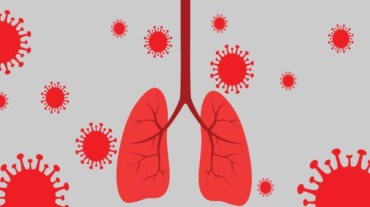
With the pollution increasing day by day, taking care of your respiratory health has become of the utmost importance. And now during these covid times, we shouldn’t neglect it anymore. But how do you even begin to take care of your respiratory health? Especially when the air we breathe is so polluted? Well, this recent research has an answer for that.
A recent study published in the journal BMJ Nutrition Prevention & Health found that high consumption of vitamins A, E, and D may be linked to fewer respiratory complaints in adults.
The findings warrant further study among different ethnic groups and geographies in view of the current coronavirus pandemic, suggest the researchers.
Nutrition has a key role in cutting the risk of several infections and vitamins A, E, C and D have already been deemed to boost your immune system. But now, the European Union and the American Nutrition Association suggests these vitamins may also help stave off respiratory infections.
The researchers explored whether the intake of these vitamins from both diet and supplements might be linked to the prevalence of respiratory complaints.
The information was collected by 6115 adult participants in the 2008-2016 National Diet and Nutrition Survey Rolling Programme (NDNS RP) who had completed three or more days of diet diaries. The NDNS RP is a rolling survey that collects information annually on all food and drinks consumed from around 1000 randomly selected people living in private households across the UK.

The researchers looked at dietary intake and potentially influential factors, such as age, sex, weight (BMI), smoking, household income and total energy intake. In all, there were 33 cases of respiratory complaints. These respondents were generally older and less likely to say they regularly took vitamins A, E, C or D supplements.
Also, read: Covid-19 update: Researchers say SARS-CoV-2 impacts respiratory centre of the brain
There was no obvious association between BMI and vitamin intake, or between BMI and respiratory complaints. But however, vitamins A and E intake from both diet and supplements were associated with a lower prevalence of respiratory complaints in the participants.
Major dietary sources of vitamin A include liver, whole milk, and cheese, as well as carrots, dark green leafy vegetables, and orange-coloured fruits. Major dietary sources of vitamin E include vegetable oils, nuts, and seeds.
Select Topics of your interest and let us customize your feed.
PERSONALISE NOWAnd vitamin D intake from supplements, but not from the diet, was associated with fewer respiratory complaints, prompting the researchers to suggest that the findings add to the current scientific debate on the value of vitamin D supplementation.

“Further research is required to assess the implications of the current study in the context of the current coronavirus disease 2019 pandemic using data from longitudinal cohorts,” the researchers suggest.
“Our study also highlights the need for a further data collection on nutrition and respiratory disorders to cover wider geographical areas and high-risk groups, including a focus on other ethnicities,” they add.
Shane McAuliffe, Science Communications Lead for the NNEdPro Nutrition & COVID-19 Taskforce says, “While acknowledging the limitations of this data, it does add further to a growing body of interest and evidence for the role of vitamin D in respiratory health.”
Professor Sumantra Ray, Executive Director of the NNEdPro Global Centre for Nutrition & Health in Cambridge adds, “Nationally representative data continue to remind us that micronutrient deficiencies are far from a thing of the past, even in higher-income nations like the UK, and this trend is mirrored by comparable global data sources from lesser resourced countries to those with advanced health systems.”
“Despite this, micronutrient deficiencies are often overlooked as a key contributor to the burden of malnutrition and poor health, presenting an additional layer of a challenge during the covid 19 pandemic,” they concluded.